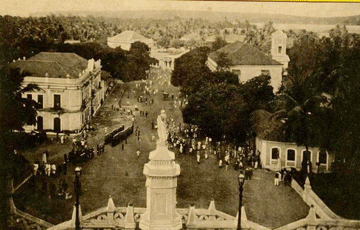Every now and again we meet someone exclaiming, “Oh, this is not my Goa anymore!” Or “Goa has changed beyond recognition, it has changed so much.” Or, “The Goa I knew used to be so different!” So what was the Goa of old like? Before it was liberated or even before the Opinion Poll, or when you were a young man or woman growing up in Goa? Was it very different? How has it changed and do you like or hate the changes?
Right, would you please like to tell us what kind of a Goa you grew up in? And how it has changed as per your perception or imagination or for real…what has changed the face of a once fair and green Goa, from being the Goa of aam aadmi dreams or khaas aadmi nightmares? Let’s hear it from you if you love Goa! We asked around and got the following quick responses, interesting….
By GO Team
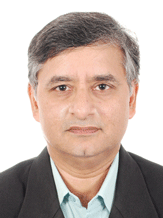
KIRIT MAGANLAL, Magson’s boss and businessmen with an old-fashioned heart, married to Andrea Maganlal, they live in Panaji:
REMINISCING on the past may be good for the soul but it certainly does not help your heart or your head! Our past always seems to have been more fulfilling, enriching and complete and so, undoubtedly, will seem the present when looked at from a future perspective.
Happiness seems to be the elusive som ras which every one of us is chasing, whereas we can hardly live our todays the way we ought to.
I was born during the erstwhile years of the Portuguese rule. It was on the cusp, actually, when Goa became a territory of India. I grew up during my younger years listening to all the tales from my grandparents about social cultures, the rule of law and the general well-being of the State was deteriorating under the new disposition. “None of our front doors had locks on them,” they said, and if a customer had to enter your premises, he would seek your permission by expressing “com licenca, permissao para entrar” in Portuguese!
We were one of the earliest families in Goa. My grandfather, Shri Maganlal Monji Canji, established his business in Panjim sometime in early 1920s. He was one of the most loved and prominent businessman of the times and spoke immaculate Portuguese having grown his formative years in East Africa. Business was good and we were privileged to own one of the first cars in Goa. Road density was unheard of since most of us traveled on foot or on cycles. The air we breathed was crystal, except for the occasional whiffs of thick tobacco smoke on the streets where everyone smoked, which thankfully is greatly restricted today.
I remember the evenings spent in so many balcao of friends and families, serenading and fun reverie. It is a different situation today where such close camaraderie happens only at weddings and social events, which, in the last two years, have also taken a backseat.
It was mandatory that we were home by 8pm for dinner, every single day, and being a joint family, dinner was always together. It was by 9pm that everyone in the house retired for the night. Our children today begin their “day” well past the 9pm time! To each their own, today, since our lives then were never as stressful during the day as they live their lives today. But society is cruel and everything happens by night so “if you can’t lick em, joinem’ has become our motto too!
In the good old days, a “bike” meant a cycle, “chill” meant gelado, “pop” meant the sound of opening the goli soda bottle and the foulest word you could utter was “Malcriado!”
We had the luxury of studying all our school years with the Salesians of Don Bosco. It was a school for every strata of society. We grew up humbled and grounded. And participated in our all round development – sports, art and the language.
So if you ask me, what’s changed? Well, I would say, time always brings about change. But has the change been for the better, is the question. I guess the answer lies in the present and its context with the past and future!
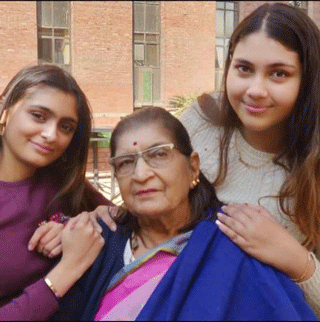
DR SUMAN KURADE,
plant lover and activist for Goa in Delhi:
The Goa which I recollect is of 40s and I see it as a calm, quiet, satisfied, big, sophisticated village. I was brought up in Panaji, started education at Mushtifund school near the Mahalakshmi temple but they had another branch at Fontainhas for nearby children. School had two timings — 8am to 10.30am and 2.40pm to 4.30pm. Behind school premises was Altinho which was full with trees and no inhabitants except a few Portuguese officers staying at the top of the hill. During recess we used to pluck asale, boram, karmala…and enjoy the wild sweet fruit as a treat.
Punctuality was maintained at school and students had a great respect for teachers and never permitted anyone to criticize or make fun of them, though teachers were free to spank the students if homework missed. Now students make fun of teachers!
Everyone in Goa had “sufficient” for the day. If not everybody had concrete houses, some had mud brick houses, some shack-like structures. There were coconut and fruit trees and vegetables, all green growing round. Nobody I knew had to look for shelter to sleep and raw material for food for the food for tomorrow was ready by the side of the house (reason for sussegad).
It was so safe that doors of houses were shut only during night. The guest who enters the house was a known person, if unknown it was atithi devo bhavo. Now even a Goenkar looks with suspicion at another Goenkar visitor (“Kitem kaam asa mhun ayla?”)! Education was not a priority and girls used to drop out after 4th standard before higher school for board exams. We had to go to Bombay as schools were affiliated to Bombay University – and for higher education to Belgavi, Dharwad, Poona or Bombay.
Roads were not concretized in Panaji but we used to run gladly barefoot on roads. Visit to Miramar beach was only during summer in the evening with the families. The land was sandy up to Kala Academy in Panaji. Every person used to be known to other person in town. There were wells by the roadside as in most houses and negro women used to carry water from wells to the houses of the Portuguese personnel.
For public, commuting and communication was problem, either by ferry or camiyao (bus). Ladies never went for marketing and shopping. All household needs were taken care of by men of the house. There was only one cinema hall in Panaji – National Cinema. Recreation for ladies was yearly when they go in locality in groups in the evening, from house to house. Papad making was a ladies get-together among ladies who used to roll papad together at one place.
Rasaptami, Chaitrapunav, Ganesh festival, Diwali, were the festivals in town which people used to look for. During Ganesh festival whole Panjim was like lockdown today as people used to their village for celebration! In Panaji Narkasur was burnt only at the Mahalakshmi temple at 4 am in morning and once the sound of firecrackers was heard from temple everyone used to go for bath.
Then festivity started. It was a custom to visit the temple first and then visit elders and relations to pay respects. Evening on Laxmi Pujan day at the establishment, after pooja, sugary balls (batesha) were distributed.
Last but not last we never heard of any corruption – either in government offices or otherwise. If any person approached any officer for any official work, work was done if it was feasible, as people knew each other by face and by name.
It is sad that Goa, Goan, Goenkorpann which we experienced is now Goa, Going, Gone. There is lots of development now but in Konkani we say sukhya barobar olle zalltha (along with dry leaves in forest even life trees get burnt), and with development, there is influx of other cultures and our Goan culture, traditions, cuisine, language is all diluted.
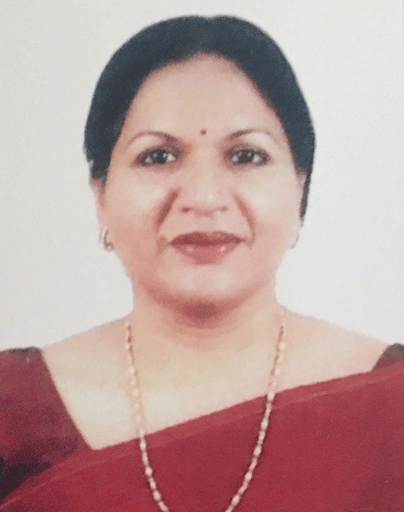
YOGITA GOSALIA, Big G owner, woman extraordinaire, you won’t believe she is a Catholic girl married into a conservative Gujarati family based in Margao, loves life and travelling:
The Goa I knew will always hold special memories for me as nature’s special chosen gift for the people of Goa. The clean air, the beautiful greenery all round, old Goan homes, no big buildings or complexes. Although Goa is a small state with a small population people were content, happy and enjoyed a very peaceful atmosphere, every religious festival of any religion or community was like an event for all, the peaceful and very safe environment had always made life in Goa joyful and special.
I remember the times when nearly every Goan home’s front door was always kept open and closed only late evening, that was the level of safety and trust. Today of course with Goa on the world map, comes infrastructure changes, development, business expansion and therefore job opportunities, and obviously an influx of people with different interests, laborers, job seekers, business seekers who want to set up shop, land investors from far and near are here and now Goa without doubt can never be the same.
Old Goan homes have been slowly making way for the high rise buildings, big societies and complexes are occupying all our open land and spaces, our Goa’s natural beauty and bounty is the biggest and saddest casualty, a helpless victim in the name of progress. Haphazard planning and development, greed and corruption, is so rampant that Goa sadly can no longer be same!
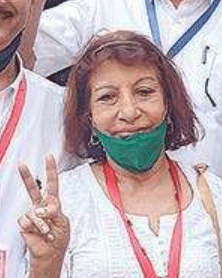
RUTH FURTADO, long standing Panaji councilor, the better half of Surendra Furtado (councilor and former mayor of Panaji):
THE Goa of yesteryears that I fondly remember was unpolluted and quiet.
People mostly knew all their neighbors and their extended families by name.
Concrete monstrosities and chemical filled, adulerated food and drinks were not there. Migrant slums were not visible.
Political leaders and voters had a conscience. Law and order was very good and there was hardly any crime. The rich Goan Portuguese culture was very much visible.
The air and beaches were clean and not crowded.
Today we see a degraded political, social, environmental and cultural scenario with a lot of dishonesty and violence.
Communities along with their culture and traditions nowadays have been ripped apart by vicious forces. Goa has become Indianised in a big way and lost its Goan flavors to a great extent.
Sorrowing lies my beloved Goa and our Goan culture!
THE CHANGE THAT GOA WISHED NOT TO SEE!
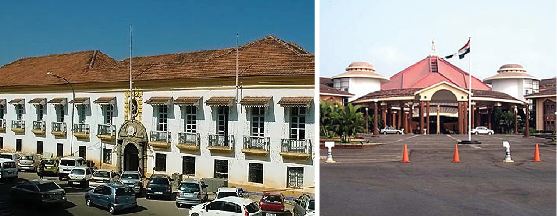
By Aires Rodrigues
Change is the very essence of being, the nature of all things and humans, whether as individuals or as social wholes. Goa and Goans are no exception. In the last many decades, including the six of my life, we have witnessed profound changes in us and around us. There have been great and magnificent achievements by individuals, by groups and by sections of our society that have uplifted so many from their previous demeaning condition by sheer dint of their effort and integrity.
I am proud to have been a witness to that, and with that as my vision I have tried to be a prouder participant in and catalyst in the socio-political processes. Alas, what I am actually seeing is nothing to be proud of, the change that right thinking Goans would ever wish to see for themselves and for their land.
That takes us to the fundamental verity that Mahatma Gandhi had placed before us: “Earth provides enough to satisfy every man’s needs, but not every man’s greed.”
It is precisely on account of our failure to abide by it, on account of the never ending greed of those in power that our Goa finds itself in the very sorry state that it has plummeted to. The all round degradation and devastation of Goa has accelerated and galloped, over the last decade in particular, with those we elected to serve us choosing instead to hurriedly make the best for themselves, while the opportunity lasts.
It looks like, our forefathers saw the best of Goa, leaving our generation to see the worst, to witness the decay that is scary to even fathom, and what more that is in store for the coming generation.
Personally, I have witnessed, in the 70’s, a much better Goa, administered with 28 MLAs (and two more, from Daman and Diu), having Chief Minister with just three ministers. That was an era when politicians had some ethics and morals. Even the bureaucracy at all levels functioned as per the rule book and never acted as stooges and slaves of those in power, or, worse still, as instigators of dirty tricks.
Childhood memories of annually spending a few peaceful and tranquil summer weeks at Calangute where the family would rent a house. Today our local people there feel very unsafe to even step out of their house after sunset.
In those days the Taleigao double murder case was the only one we heard of. Today, the ever increasing number of rapes, murders and thefts, has made Goa a very unsafe destination having now also evolved as India’s gambling, prostitution and narcotics hub.
What Goa is witnessing is a Jamboree of blatant political prostitution sponsored by the now cash rich and power intoxicated rulers. Even those in the world’s oldest profession are far more trustworthy.
The fresh air that our forefathers had enjoyed is now history. There has been an absolute failure to ensure a clean and healthy environment. The conservation and protection of Goa’s ecology was vital but in the name of development we are facing the brunt and suffocate in a much polluted atmosphere, while our forest cover, hills and fields have been vanishing.
Franklin Roosevelt, the 32nd President of United States of America had so rightly said “A nation that destroys its soils destroys itself. Forests are the Lungs of our land, purifying the air and giving fresh strength to our people.”
Goa today finds itself enveloped in chronic administrative chaos with deep rooted rampant organized corruption, nepotism and sheer bad governance. In misgoverning the State it has been confusion, contradiction and controversies galore with an unending string of U-turns and reneged promises.
Despite being as optimistic as one can really be, realistically I see it to be an extremely uphill task to now rescue Goa from the current administrative mess and restore the democratic and secular values, to safeguard for posterity what little remains of our once beautiful and tranquil State.
Posterity will never forgive those responsible in this irreparable damage and destruction of what was once a beautiful Goa, the Paradise of the East.
